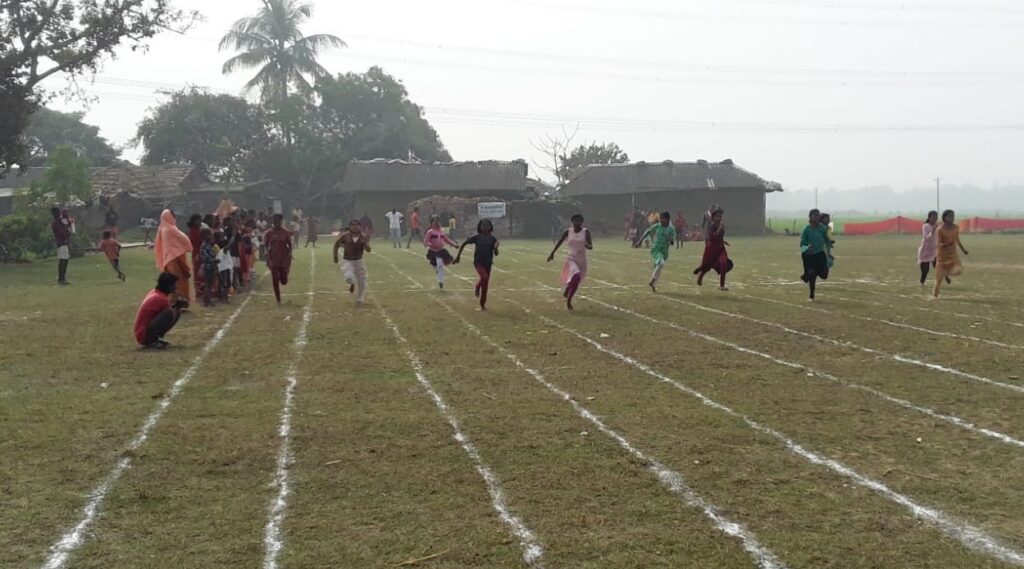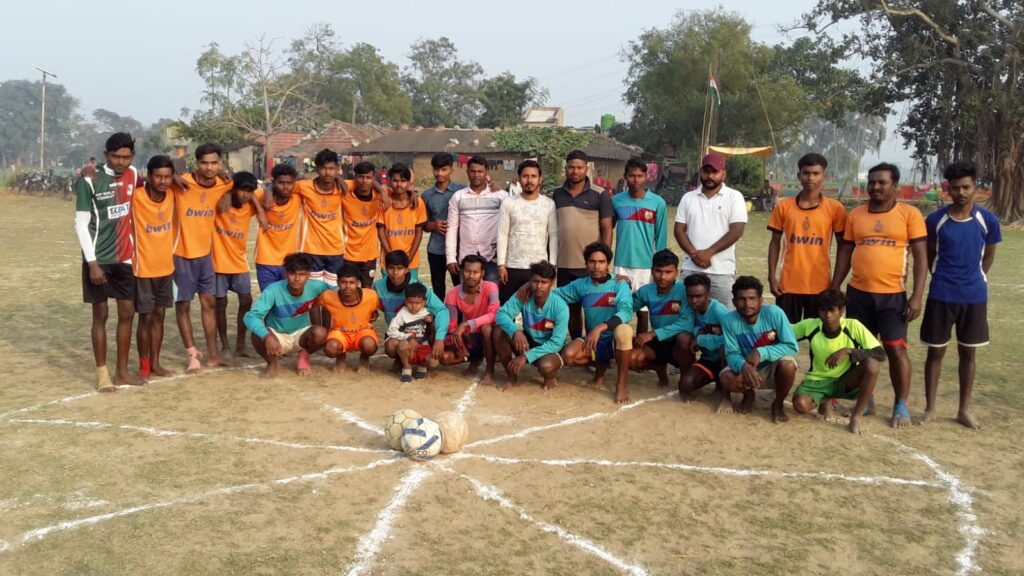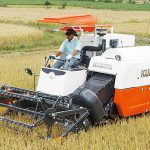Events / News
9 August 2025 – World Day of Indigenous Peoples
The majority of children at Dhrubotara are of Adivasi (Tribal ) heritage. In the past, and still today, the numerous Adivasi communities existing within India are usually among the poorest, less educated and least empowered. Their languages are often in danger and their younger members are likely to adopt the culture, language, aspirations and religion of the majority ‘mainstream’ society. Dhrubotara school tries to make the children proud of their heritage as adivasis, in addition to helping them to advance in terms of education and economic condition.
Sports Event returns January 2025

Dhrubotara’s sports event returned in January 2025 after a gap of 5 years (since the start of Covid). It was attended by all students, families and volunteers from the two communities of Joihoripur and Makhalpur. For the first time it took place at Joihoripur. The sports field near Makhalpur, but owned by others, had become overgrown with shrubs and long grass to the extent that it was no longer usable. The sports field at JHP is well used and maintained by the community.
Events were : 100 meters races, long jump, ball throw for youngest, and the inter-villages football match. This match consists of 2 x 20 minute halves and is a very hard fought affair between the two teams, partly older school students and partly young working chaps. It was won 2 : 1 by Joihoripur.
Prizes (1st, 2nd, 3rd) were given for all events by age group, and a small cash prize to the footballers of both teams. A snack of muri (puffed rice), samosa and banana was give to all children and volunteers. It was a successful and happy day and will be repeated every year in the cool season on 23 January.

Speed Game at Joihoripur
Teachers at Dhrubotara create activities which are fun and interesting. Children who enjoy school come to school regularly and learn better…!
Dhrubotara Lending Library Starts
From February 2018 children in the morning classes at Dhrubotara will choose a a book every week which they can take home to read. Children who cannot read, or only a little, can take a book for a parent or older sibling to read to them. Most of the books we have bought have attractive pictures so even non-readers should find them interesting. Almost 100 books were bought from the National Book Trust bookshop in Kolkata where we have membership and get a 20% discount. All have been covered with clear plastic to extend their life. In time we will buy some books suitable for our teenage high school going students and extend the library to them also.
Teachers will launch the library after a meeting with parents of both schools to explain how they can help to improve their child’s literacy and general knowledge. Books borrowed will be recorded and chased by teachers if not returned.
The books in the photo are a selection of what we have just acquired. Dhrubotara has many books already but they tend to become tatty and unattractive with time.
Combine harvesters cut nearly 100% rice crop near Dhrubotara in the main harvest of late 2024.
The field work on which the landless folk in Hugli District depend is disappearing. Harvesting of rice is now done almost 100% by harvester machines which are smaller scale versions of large harvesters used in Europe and North America. The machine is driven by one man. It cuts the rice and threshes it in one operation. The straw is thrown loosely out onto the ground behind the machine. In this condition the straw is not suitable for chopping by hand on a large blade called a bonti so that it is small enough to be mixed with water and other food to be fed to cattle.
When the rice was cut by hand each labourer used to cut several plants, then leave a tidy bundle of stems on the ground where it was tied up using a stem into a bundle. After drying in the air for a few days on the ground the bundles were collected up into much larger and heavier loads and transported to the owner’s yard where it was stacked in readiness for threshing.
With the onset of the machines not only the cutting, but also the carrying and threshing work is disappearing. The machine holds the threshed rice until it is full. Then the grains are poured out into sacks or a trailer which is pulled to the landowner’s yard. The machines do not clean the threshed rice very well so some winnowing work remains. The straw which is left strewn in the fields is normally now burnt, causing additional air pollution and contributing to the smog which hangs over local cities in the Winter.
Ploughing of the small fields, which 35 years ago was usually done by a man driving 2 small bullocks, and then by a powerful diesel powered cultivator, is now mostly done at speed by a single person driving a full sized tractor. Transplanting of the rice plant seedlings from the seedbeds where they are germinated is still done by hand, mostly by women. It is inevitable that this work too will eventually be done by machines.
Because of the relatively high cost of tractors and harvesters they are owned by the more wealthy local landowners and business people and hired by the quarter hour to the actual cultivators of the land.
The old way of life, dependent on human and animal power in the fields is vanishing. It is clearly necessary that the new generation of young adults acquire education and enter new types of employment, both for advancement and survival. Dhrubotara understands this well and aims to help the current generation of students to equip themselves better for the future.
New text block coming soon.




